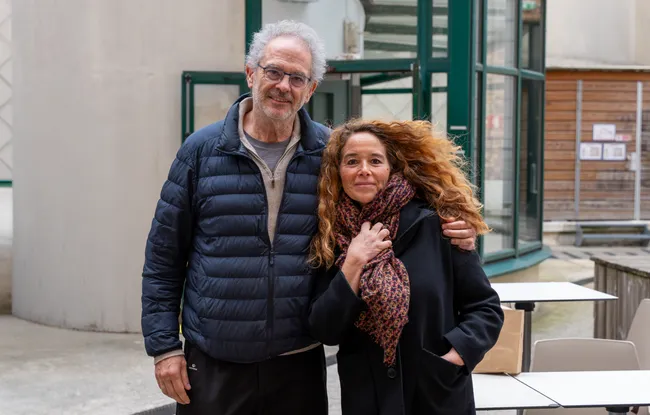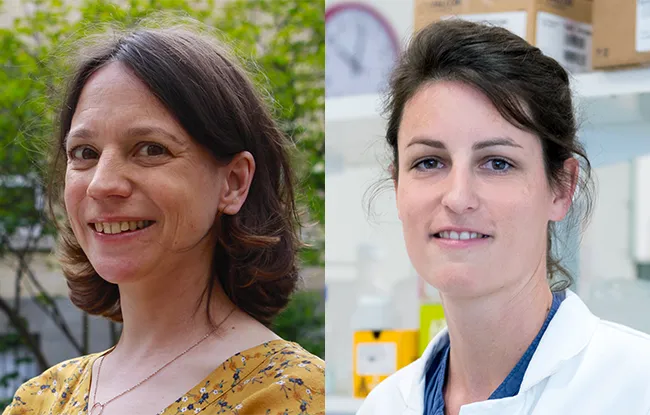- Home >
- Institut Curie News >
- Dr. Ines Drinnenberg and Dr. Céline Vallot, winners of an ERC Consolidator Grant
On December 3, 2024, the European Research Council (ERC) announced the winners of its ERC Consolidator Grants 2024. Among them, Dr. Ines Drinnenberg and Dr. Céline Vallot, both team leaders at Institut Curie. This substantial financial support, of up to 2 million euros over five years, will allow them to develop their research aimed at better understanding key biological processes, in the hope of paving the way for innovative therapeutic solutions.
The ERC Consolidator Grants are prestigious research grants awarded by the European Union to support established researchers. They offer up to 2 million euros over a period of five years and encourage groundbreaking research, especially in the fields of biology and health sciences.
CHROMOGENESIS: deciphering the impact of chromatin on genomic evolution
Dr. Ines Drinnenberg, head of the Evolution of centromeres and chromosome segregation team (CNRS UMR3664 / Sorbonne University), explores in this project the essential role of chromatin in the organization and evolution of the genome. By studying insects such as lepidoptera (butterflies and moths), she seeks to understand how chromatin variations influence the structure and dynamics of chromosomes.
"It's more than just packaging DNA. Chromatin structures genomes and plays a fundamental role in the segregation of chromosomes, a key function for genetic stability," emphasizes Ines Drinnenberg.
CHROMOGENEVO is particularly interested in the holocentric chromosomes, a unique organization where the anchoring of the fibers of the mitotic1 spindle extends over the entire length of chromosome, and not over a single region. This peculiarity could transform our understanding of evolutionary mechanisms, as well as genetic abnormalities related to chromosome segregation.
IGNITION: exploring the first mechanisms of tumor initiation
As part of this project, Dr. Céline Vallot, head of the Dynamics of epigenetic plasticity in cancer team (CNRS UMR3244 / Translational Research Department / Sorbonne University), aims to understand the first stages of tumor formation, especially in women carrying BRCA1/2 mutations. Thanks to patient samples and innovative models such as 3D "avatars" of mammary glands - three–dimensional models from cells taken from patients, making it possible to simulate the transition from a normal to tumor state in a controlled environment - the team seeks to understand the process leading from healthy cells to tumor cells.
"We know that genetic mutations alone are not enough to cause cancer. This project aims to decipher the early epigenetic signals that precede tumors in order to identify levers to delay their appearance," explains Céline Vallot.
By combining cutting-edge technologies, IGNITION aims to accurately map epigenetic alterations. This project could pave the way for personalized prevention strategies for people at risk.
[1] Cellular structure that helps separate chromosomes during cell division.
Research News
Discover all our news
Celebration
The Immunity and Cancer research unit (U932) celebrates its twentieth anniversary
12/12/2025
Artificial Intelligence
08/12/2025


